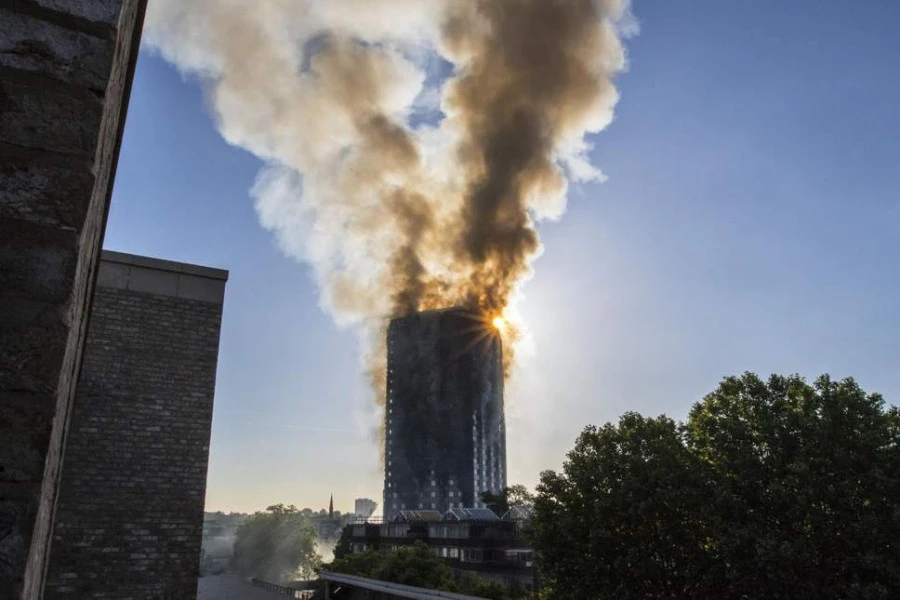A top fire chief has said nobody should have ever lived in Grenfell Tower after he reflected on the “horrendous” spread of fire.
Deputy assistant commissioner Andrew O'Loughlin said crews could not have predicted the way flames engulfed the outside of the cladded block and tore through its internal compartments.
Mr O’Loughlin, who led London Fire Brigade’s response to the incident in June last year, said this was why the standard “stay-put” advice to people wasn’t adjusted until 2.47am, when they were told to escape if they could.
He told the Grenfell inquiry on Tuesday: “You wouldn't expect fire to spread around the building like it did on the outside, and for it to fail so catastrophically. Similarly, we would not expect the internal protection to fail so badly as well.
“I mean, the building was so horrendous several hours later that I think no-one should have lived in the building.
“So to say we should have changed the 'stay-put' advice, I don't think would have been reasonable based on something that happened several hours later that none of us could ever have expected."
Some 71 people died in the fire, with a 72nd person dying months later.
Another fire chief, assistant commissioner Andrew Roe, also gave evidence on Tuesday, saying he was “shocked” at the way the flames spread.
"The fact the facade had kind of acted as the petrol, as it were, to spread the fire all over the building was one thing that was obviously genuinely shocking.
“But it was the complete failure of the building system that caught me by surprise."
Mr Roe likened the high-rise block in north Kensington to a cheese grater which allowed the flames to permeate.
He told the inquiry: “To put it in layman's terms, you had an accelerant on the outside and it felt to me like the building was punched through of holes.
Grenfell fire chief 'believed only a few flats would catch alight' "It was like a cheese grater, in a sense that there must have been a route for that fire. Because it's the only way you can explain that in a concrete building.”
The inquiry continues.
Original source Evening Standard





